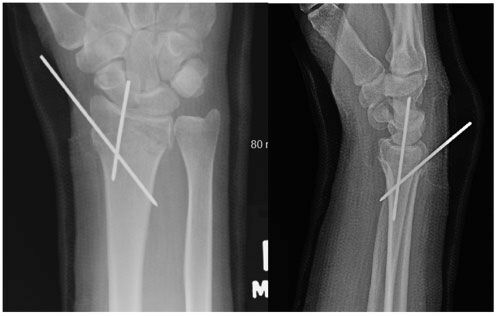- Home
- Medical news & Guidelines
- Anesthesiology
- Cardiology and CTVS
- Critical Care
- Dentistry
- Dermatology
- Diabetes and Endocrinology
- ENT
- Gastroenterology
- Medicine
- Nephrology
- Neurology
- Obstretics-Gynaecology
- Oncology
- Ophthalmology
- Orthopaedics
- Pediatrics-Neonatology
- Psychiatry
- Pulmonology
- Radiology
- Surgery
- Urology
- Laboratory Medicine
- Diet
- Nursing
- Paramedical
- Physiotherapy
- Health news
- Fact Check
- Bone Health Fact Check
- Brain Health Fact Check
- Cancer Related Fact Check
- Child Care Fact Check
- Dental and oral health fact check
- Diabetes and metabolic health fact check
- Diet and Nutrition Fact Check
- Eye and ENT Care Fact Check
- Fitness fact check
- Gut health fact check
- Heart health fact check
- Kidney health fact check
- Medical education fact check
- Men's health fact check
- Respiratory fact check
- Skin and hair care fact check
- Vaccine and Immunization fact check
- Women's health fact check
- AYUSH
- State News
- Andaman and Nicobar Islands
- Andhra Pradesh
- Arunachal Pradesh
- Assam
- Bihar
- Chandigarh
- Chattisgarh
- Dadra and Nagar Haveli
- Daman and Diu
- Delhi
- Goa
- Gujarat
- Haryana
- Himachal Pradesh
- Jammu & Kashmir
- Jharkhand
- Karnataka
- Kerala
- Ladakh
- Lakshadweep
- Madhya Pradesh
- Maharashtra
- Manipur
- Meghalaya
- Mizoram
- Nagaland
- Odisha
- Puducherry
- Punjab
- Rajasthan
- Sikkim
- Tamil Nadu
- Telangana
- Tripura
- Uttar Pradesh
- Uttrakhand
- West Bengal
- Medical Education
- Industry
No significant benefit of administering peri-operative antibiotics for patients undergoing orthopaedic surgery using K-wire

Ahmad Abul et al conducted a study to compare the outcomes of antibiotic prophylaxis versus no antibiotic in K-wire fixation when used in either in trauma or elective orthopaedics. It has been published in “Indian Journal of Orthopaedics.”
Kirschner (K) wires are commonly used in orthopaedic surgery for fixation of unstable fractures such as supracondylar humerus fractures in paediatric patients, distal radius fractures in paediatric and adult patients and elective surgery of the foot.
There are currently no standardised guidelines on whether antibiotic prophylaxis is required for Kirschner wire (K-wire) fixation to minimise the risk of surgical site infection when used in patients undergoing clean orthopaedic surgery.
A systematic review and meta-analysis were performed as per the Preferred Reporting Items for Systematic Reviews and Meta-analyses (PRISMA) Guidelines and a search of electronic information was conducted to identify all randomised controlled trials (RCTs) and non-randomised studies comparing the outcomes of antibiotic prophylaxis group versus those without antibiotic in patients undergoing orthopaedic surgery in which K-wire fixation was used. Incidence of surgical site infection (SSI) was the primary outcome. Random effects modelling was used for the analysis.
Findings of the study were:
• Search strategy retrieved 181 studies and after a thorough screening of the retrieved articles, the authors identified five studies in total which met the eligibility criteria.
• Four retrospective cohort studies and one RCT were identified with a total of 2316 patients.
• There was no significant difference between the prophylactic antibiotic and no antibiotic groups in terms of incidence of SSI (odds ratio [OR]=0.72, P=0.18).
The authors commented – “In conclusion, based on the current available evidence there is no significant difference in administering perioperative antibiotics for patients undergoing fracture fixation with K-wire. Further high quality, prospective studies are required to improve the evidence base to influence guidelines.”
Further reading:
Peri operative Antibiotic Prophylaxis in K Wire Fixation: A Systematic Review and Meta analysis
Ahmad Abul, Mohammad Karam et al
Indian Journal of Orthopaedics (2023) 57:1000–1007
https://doi.org/10.1007/s43465-023-00879-6
MBBS, Dip. Ortho, DNB ortho, MNAMS
Dr Supreeth D R (MBBS, Dip. Ortho, DNB ortho, MNAMS) is a practicing orthopedician with interest in medical research and publishing articles. He completed MBBS from mysore medical college, dip ortho from Trivandrum medical college and sec. DNB from Manipal Hospital, Bengaluru. He has expirence of 7years in the field of orthopedics. He has presented scientific papers & posters in various state, national and international conferences. His interest in writing articles lead the way to join medical dialogues. He can be contacted at editorial@medicaldialogues.in.
Dr Kamal Kant Kohli-MBBS, DTCD- a chest specialist with more than 30 years of practice and a flair for writing clinical articles, Dr Kamal Kant Kohli joined Medical Dialogues as a Chief Editor of Medical News. Besides writing articles, as an editor, he proofreads and verifies all the medical content published on Medical Dialogues including those coming from journals, studies,medical conferences,guidelines etc. Email: drkohli@medicaldialogues.in. Contact no. 011-43720751


